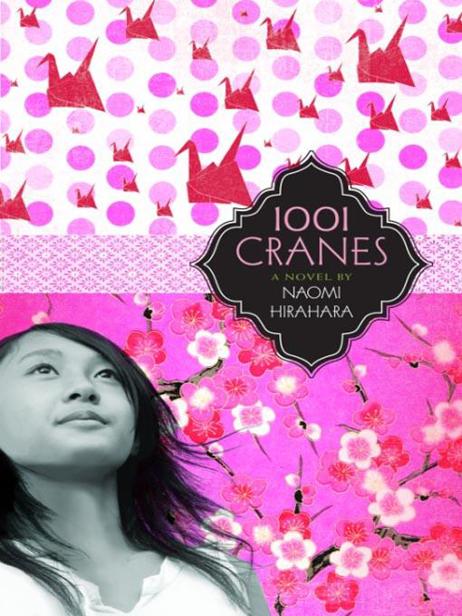
1001 Cranes
فرمت کتاب
ebook
تاریخ انتشار
2008
Lexile Score
720
Reading Level
3
ATOS
4.6
Interest Level
4-8(MG)
نویسنده
Naomi Hiraharaشابک
9780375848810
کتاب های مرتبط
- اطلاعات
- نقد و بررسی
- دیدگاه کاربران
نقد و بررسی

lovemuggles - This book was great. It was really cool. All my friends read it and told me that I should read it to. So I did and it was great.

August 25, 2008
In her first book for young readers, Edgar-winner Hirahara examines ruptured relationships and reinforced cultural heritage. Twelve-year-old Angela, the narrator, has been sent to spend the summer with her maternal grandparents outside Los Angeles, originally because her parents need to address the problems in their relationship. She’s uncomfortable around stern Grandma Michi, an expert on things Japanese—unlike her much warmer paternal grandmother, Baa-chan, who even with that name claims to be “100 percent American.” Taught that displays of 1001 paper cranes have become a Japanese-American wedding tradition, Angela is put to work folding cranes for her grandmother’s business. Hirahara writes lyrically of folding (at one stage the paper “resembles a gold kite waiting to be released in the wind”), and as Angela learns that her father has moved out, origami convincingly becomes a “medicine.” Throughout the summer she becomes privy to the secret wounds in other people’s hearts (a tough bride, an older neighbor, her own mother and, finally, Grandma Michi), and sustains a mild injury to her own. Although some story lines resolve too neatly, readers will respond to Angela’s contemporary voice as she discovers the value of evolving traditions. Ages 10–up.

August 1, 2008
Gr 5-8-Twelve-year-old Angela Kato is not thrilled at the prospect of leaving her home in a San Francisco suburb in order to spend the summer with her disapproving Grandma Michi, her strange Aunt Janet, and her good-natured grandfather in their unattractive, crowded house in smog-filled Los Angeles. Her time will be spent folding origami "1001-cranes displays," considered good luck for weddings, for her grandparents' business. Besides missing her friends, Angela knows that her parents are separating again, and that her dad has already rented an apartment. Once in LA, Angela meets several new people who have burdens of their own. A younger girl, Rachel, has just been adopted, and Angela observes that her grandmother acts far more lovingly to this child than she does to Angela. Next door, two sisters-in-law seem to hate each other even while they are involved in planning a celebration for their parents-in-law. Unexpectedly, Angela meets a boy who wants to date her, and she tries to keep him a secret from her watchful family. Her colorful, bold voice captures the excitement of her first love as well as the anxiety of not understanding the many secrets of the adults around her. By experiencing her family's support, by learning about her Japanese heritage, and by acknowledging the various ways that love is expressed, Angela emerges into a strong, caring person."Lillian Hecker, Town of Pelham Public Library, NY"
Copyright 2008 School Library Journal, LLC Used with permission.

August 1, 2008
When her parents marriage starts to implode in northern California, 12-year-old Angela is shipped off to Los Angeles to spend the summer with her maternal, Japanese American grandparents and aunt. At first, Angela resents the move, especially the hours spent in her grandparents 1001 Cranes room, where the family creates elaborate origami displays for sale. She also struggles to communicate with her taciturn family, particularly her grandmother. Gradually, though, she finds comfort and new confidence as she masters the intricate paper folding techniques and discovers new ways to reach out to those around her. Hirahara, best known for her adult mysteries, offers a quiet, contemplative story that captures a girls firststeps into adolescence amid family grief and reconciliation. The storys gentle pace and sometimes superfluous detail may frustrate some readers, but Angelas questions about her family history and Japanese American culture, her acute sensitivity, and her heartache will resonate with young people of all backgrounds, particularly those who, like Angela, yearn to be the glue that fastens . . . parents together again.(Reprinted with permission of Booklist, copyright 2008, American Library Association.)

























دیدگاه کاربران